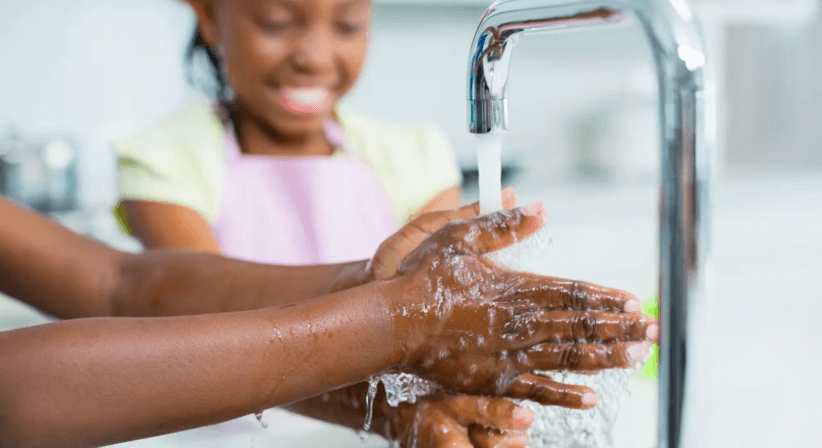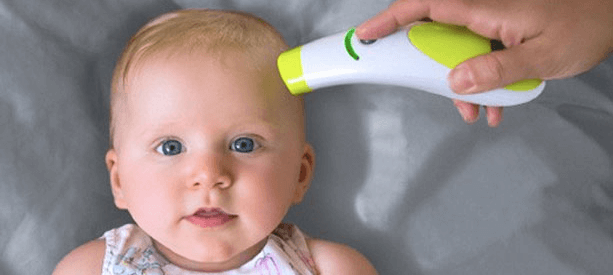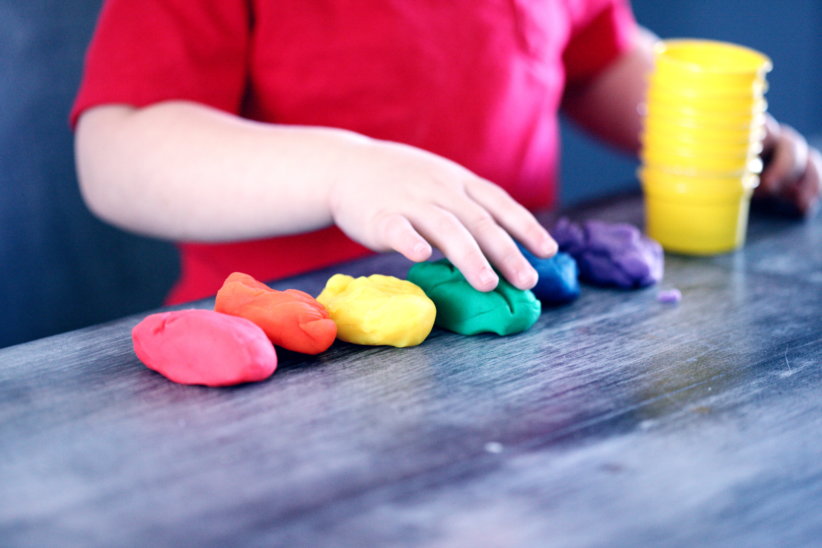Childcare Facilities Open In New York City: Everything You Need To Know
As New York City continues to make progress in the reopening process, many childcare facilities throughout the city are reopening their doors. While this is a huge relief and will make things more convenient for people who are soon returning to work, the first thing parents will want to be aware of before sending their kids back is the procedures put in place in these facilities that will help to keep the kids and staff as safe and healthy as possible. This list includes the strategies suggested by the CDC for New York City childcare facilities.
Looking for more fun childcare options for the summer? Check out our article The Best Late Summer Camps in New York for 2020!
Social Distancing
Play at childcare facilities should take place outside as often as possible to limit the amount of time in confined space, and the maximum number of children in each room should be 15. If space permits, nap time will consist of mats and cribs being spaced out with ideally six feet between each child. It is suggested that there be no events that include guests such as parties for holidays or other special events. If possible, there will be separate rooms for children of healthcare and frontline workers. Administrative staff will be encouraged to work from their homes when and where possible and pick up and drop off times should be staggered. Plans for this process should limit the amount of contact between staff and parents/guardians.
Hand Hygiene
All children and staff should routinely wash their hands thoroughly with soap and water. Hand washing should occur upon arrival, before and after breaks, after coming in contact with bodily fluids, after playing outdoors, after handling garbage, before and after diapering, and before or after eating food or feeding children. Hands should be washed with soap and water for at least 20 seconds. If hands are not visibly dirty, alcohol-based hand sanitizers with at least 60% alcohol can be used if soap and water are not readily available. Children should be carefully supervised when using any kind of sanitizer and should be assisted when washing their hands.

Health Screening
When and if possible, childcare facilities should be screening children upon arrival. Any child or staff member who has a fever of 100.40 (38.00C) or above or other signs of illness should not be admitted to the facility. Parents should be on the alert for signs of illness in their children and keep them home when they are sick. A distance of six feet should be kept or a physical barrier, such as a window or partition, in place when taking a child’s temperature. Staff can also make a visual inspection of the child for signs of illness which could include flushed cheeks, rapid breathing or difficulty breathing (without recent physical activity), fatigue, or extreme fussiness. Gloves and thermometers should be changed and disinfected between each child.
Cleaning And Disinfecting
All facilities should routinely clean, sanitize, and disinfect surfaces and objects that are frequently touched, especially toys and games. This may also include cleaning objects/surfaces not ordinarily cleaned daily such as doorknobs, light switches, classroom sink handles, countertops, nap pads, toilet training potties, desks, chairs, cubbies, and playground structures. As usual, all cleaning products should be used in accordance with the directions on the label and always kept out of reach of children. If possible, the facility should provide EPA-registered disposable wipes to child care providers and other staff members so that commonly used surfaces such as keyboards, desks, and remote controls can be wiped down before use. Any toys that cannot be sanitized should not be used, and toys that children have placed in their mouths or that are otherwise contaminated by body secretions or excretions should be set aside until they are cleaned by hand by a person wearing gloves.
Food Preparation And Meal Service
If a cafeteria or group dining room is typically used, meals should be served in classrooms instead. If meals are typically served family-style, staff should plate each child’s meal to serve it so that multiple children are not using the same serving utensils. Food should never be served by staff members who diaper children, and caregivers should ensure that children are washing their hands thoroughly before and after eating. Staff should be doing the same before and after serving meals. Any sinks used for food preparation should not be used for anything else.
Infant And Toddler Care
When diapering a child, staff should wash their hands and wash the child’s hands before beginning, and wear gloves. Procedures should be posted in all diaper changing areas. Steps should include preparing and cleaning the child, removing soiled diapers and wipes and replacing the diaper. The diaper station should then be cleaned and hands should be washed again. If reusable cloth diapers are used, they should not be rinsed or cleaned in the facility. The soiled cloth diaper and its contents (without emptying or rinsing) should be placed in a plastic bag or into a plastic-lined, hands-free covered diaper pail to give to parents/guardians or laundry service. It is important to comfort crying, sad, and/or anxious infants and toddlers, and they often need to be held. To the extent possible, when washing, feeding, or holding very young children: Child care providers can protect themselves by wearing an over-large button-down, long-sleeved shirt and by wearing long hair up off the collar in a ponytail or other updo. They should change the button-down shirt, if there are secretions on it, and wash their hands again. Child care providers should wash their hands before and after handling infant bottles prepared at home or prepared in the facility. Bottles, bottle caps, nipples, and other equipment used for bottle-feeding should be thoroughly cleaned after each use by washing in a dishwasher or by washing with a bottlebrush, soap, and water.

High Risk Groups
To protect those at higher risk, it’s important that everyone practices healthy hygiene behaviors. If there are staff members or teachers age 65 or older, or with serious underlying health conditions, they should talk to their healthcare provider to assess their risk and to determine if they should stay home. Information about COVID-19 in children is somewhat limited, but the information that is available suggests that many children have mild symptoms. However, a small percentage of children have been reported to have more severe illness. Children with underlying health conditions should be carefully monitored, and staff should follow children’s care plans for underlying health conditions such as an asthma action plan.























